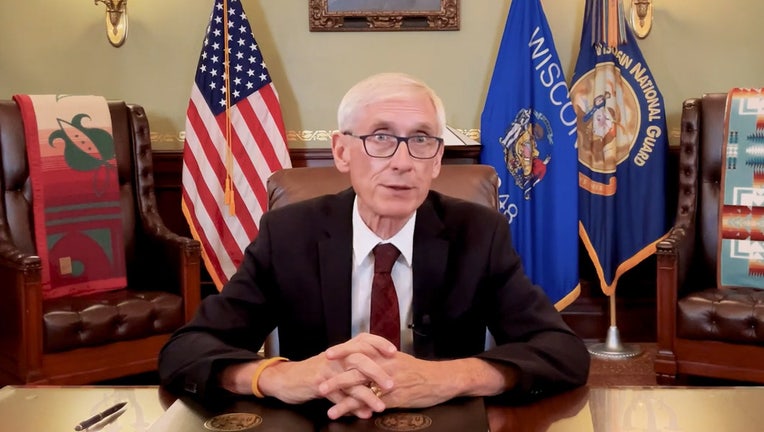Wisconsin's Democratic governor vetoes GOP abortion bills

Gov. Tony Evers
MADISON, Wis. - Wisconsin's Democratic Gov. Tony Evers vetoed five Republican-authored anti-abortion bills on Friday, a day after the U.S. Supreme Court heard arguments in a case that could curtail if not end a woman’s right to abortion.
Evers, who is making his support for abortion rights a key plank of his 2022 reelection campaign, had been widely expected to veto the measures the GOP-controlled Legislature passed in October.
"I’ve said it before, and I’ll say it again today: as long as I’m governor, I will veto any legislation that turns back the clock on reproductive rights in this state — and that’s a promise," Evers tweeted in announcing the vetoes.
Republicans do not have enough votes in the Legislature to override the vetoes. Republican legislative leaders did not immediately return messages seeking comment on the vetoes and whether they would seek an override vote.
One bill, which Evers also vetoed in 2019, would impose criminal penalties on doctors who fail to give medical care in the extremely rare circumstance in which a baby is born alive following an abortion attempt. Violators would be guilty of a felony punishable by up to six years in prison.
The bill also would make intentionally causing the death of a child born alive as a result of an abortion a felony punishable by life in prison.
Doctors insist the proposal is a solution in search of a problem. They and other opponents say babies are almost never born alive during failed abortion attempts and in the rare instances in which they are, doctors are already ethically and legally bound to try and keep them alive.
The bill’s supporters say the measure would remove any gray areas in the law.
A second bill Evers vetoed would require doctors to provide the parents of fetuses and embryos that test positive for a congenital condition information about the condition. A third proposal he vetoed would prohibit abortions based on a fetus’ sex, race or national origin. Evers also vetoed that measure in 2019.
A fourth measure Evers vetoed would reduce funding for abortion providers by prohibiting the state from certifying them as a provider under Medicaid. There would be exceptions in cases of sexual assault or incest or if the woman’s life is in danger.
The fifth bill he vetoed would require doctors to tell any woman seeking a medication-induced abortion that she could change her mind after ingesting the first dose and continue the pregnancy.
The claim that a medicine-induced abortion can be reversed has been criticized by the American College of Obstetricians and Gynecologists and the American Medical Association as not based in science and potentially threatening to the patient’s life. Evers vetoed such a bill two years ago.
The bills come as abortion rights supporters are concerned that the U.S. Supreme Court could overturn its 1973 Roe v. Wade decision that essentially legalized abortion nationwide before a fetus can survive outside the womb, which is generally around the 24th week of a pregnancy. A Wisconsin law enacted in 1849 made abortion illegal, but it has been unenforceable since the Roe v. Wade decision. That ban would take effect again if Roe v. Wade is overturned.

